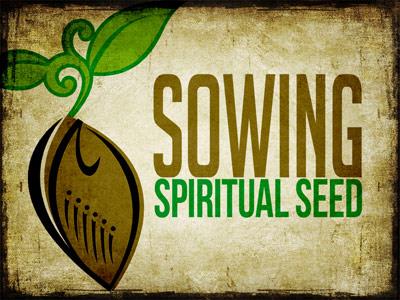-
Parables Of The Mustard Seed And Leaven Series
Contributed by John Lowe on Sep 26, 2017 (message contributor)
Summary: The mustard seed was often planted by farmers in Palestine. Matthew and Mark point to the seed’s small size and contrast this with the size of the full-grown tree (a mustard seed can produce a tree 30 feet tall).
Probably Perea
Lesson: Parables of the Mustard Seed and Leaven
When ever Jesus wanted to explain what something was like, to people who didn’t know anything about it, He used parables in which He would compare it to something they did know about. So Christ undertakes here to show what the kingdom of God is like.
(Luke 13:18-21) Then said he, Unto what is the kingdom of God like? and whereunto shall I resemble it? It is like a grain of mustard seed, which a man took, and cast into his garden; and it grew, and waxed a great tree; and the fowls of the air lodged in the branches of it. And again he said, Whereunto shall I liken the kingdom of God? It is like leaven, which a woman took and hid in three measures of meal, till the whole was leavened.
The mustard seed was often planted by farmers in Palestine. Matthew and Mark point to the seed’s small size and contrast this with the size of the full-grown tree (a mustard seed can produce a tree 30 feet tall). The seed could represent the kingdom of God, implying the large or surprising growth of Christianity from a tiny seed. While the kingdom of God started small like a mustard seed (with a baby’s birth, a young preacher, and a handful of disciples), the result of the kingdom’s growth would be extraordinary. Luke, however, said nothing about the size but emphasized that birds can nest in its branches. Birds roosting in branches can represent the nations of the earth, emphasizing a universal kingdom in which all people, both Jew and Gentile, can share. On the other hand, the birds that sat in the branches may picture evil as it does in Matthew 13:4 and 19.
The kingdom of God was also compared to a woman who mingled leaven into several loaves of meal until they had all risen. Leaven represents not the gospel but a principle of evil. Leaven never represents good as used in the Bible. Leaven occurs about ninety-eight times in the Bible—about seventy-five times in the Old Testament and about twenty three times in the New Testament. It is always used in a bad sense. Although many sincere folks think of leaven as representing the gospel, which will spread over the entire world and convert the world, they are doomed to disappointment. There will be no kingdom and no peace until Christ returns to establish His kingdom on this earth. The organized church can not bring in His kingdom. In His own time Christ will come Himself and establish His kingdom.
The point of the parable is that the kingdom of God will grow rapidly from a small insignificant start to what it is today with its many organizations and denominations. But the devil, represented by the birds and the leaven, will be active in Christendom and in many so-called churches.

 Sermon Central
Sermon Central



